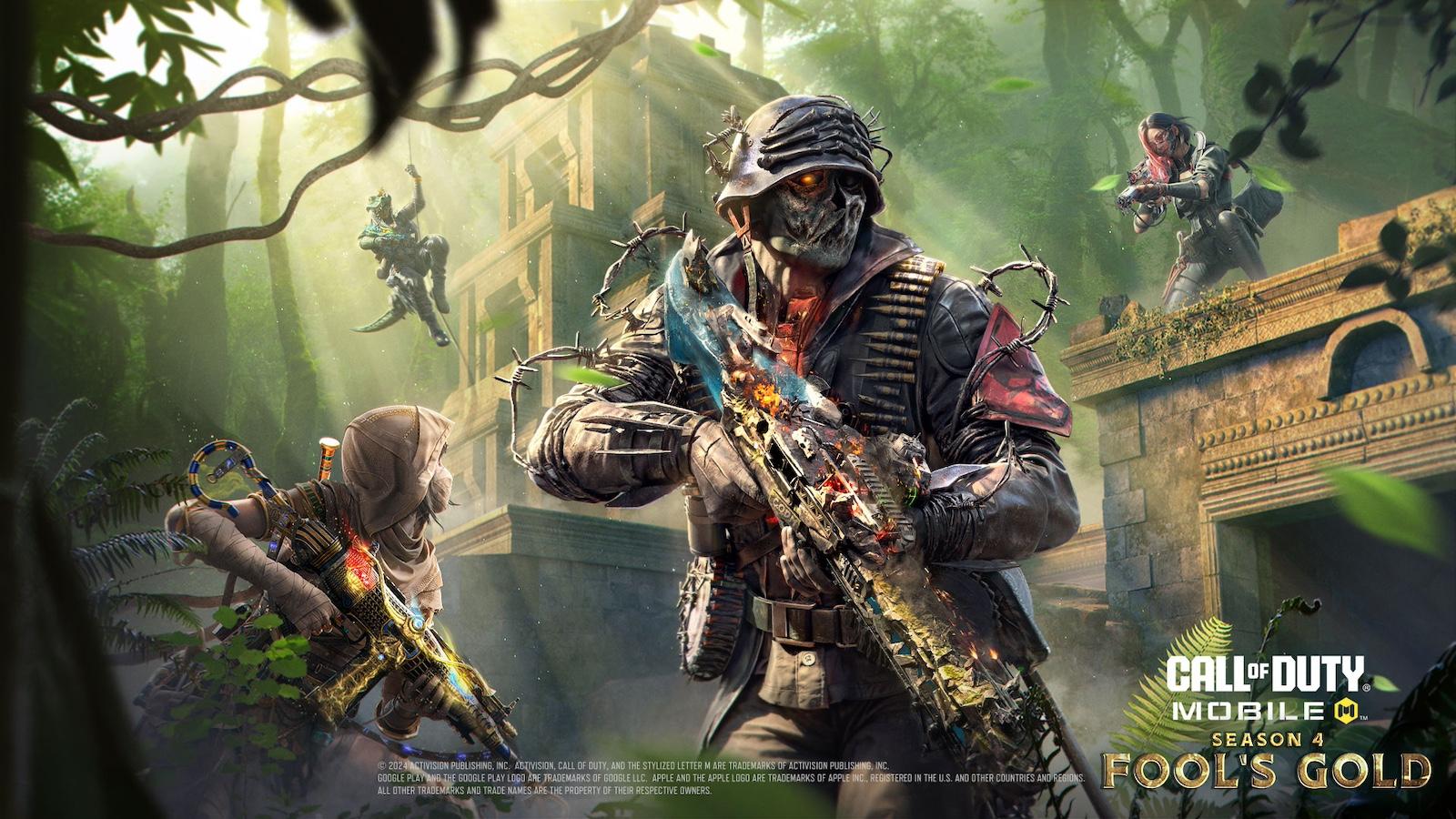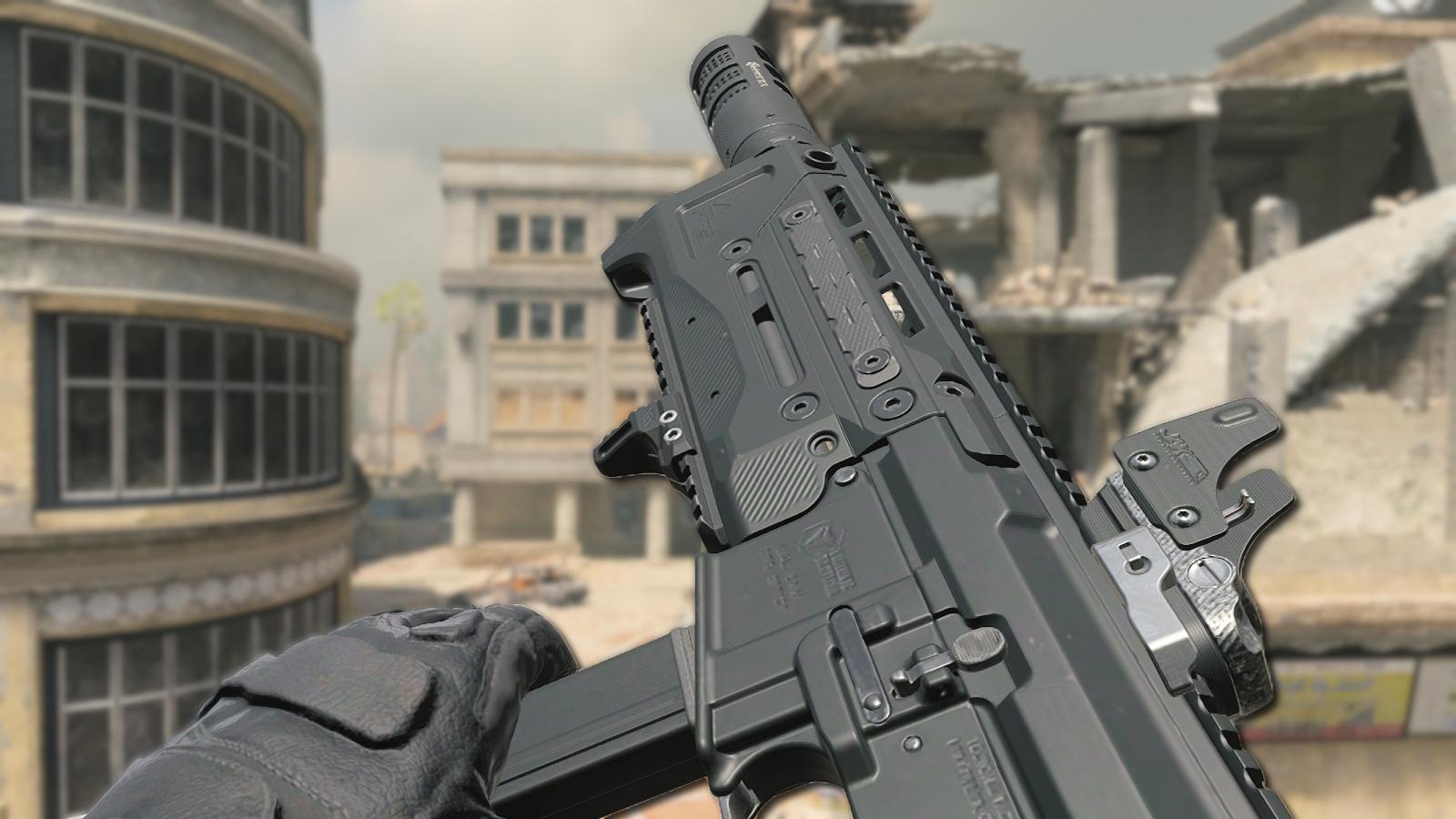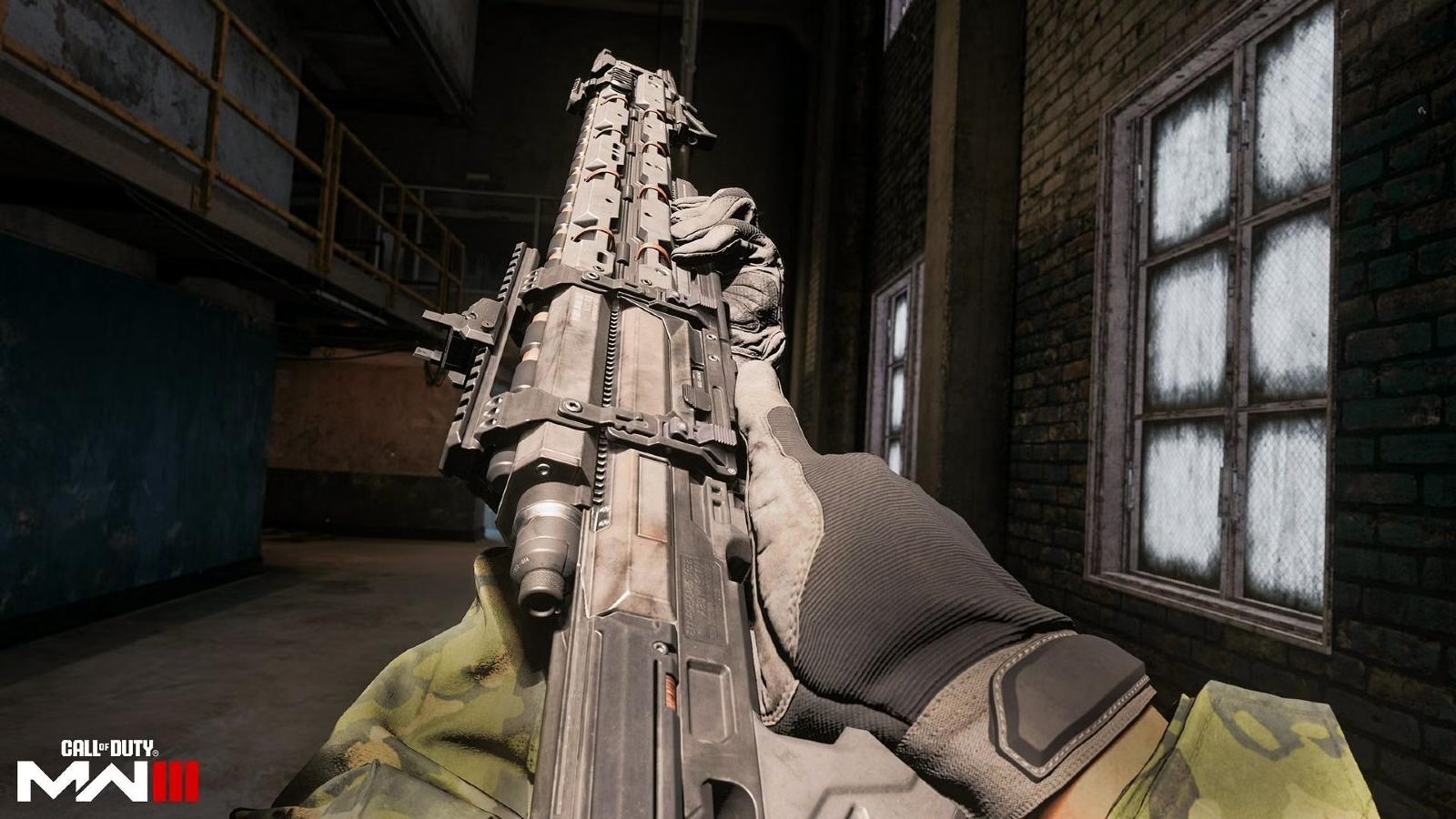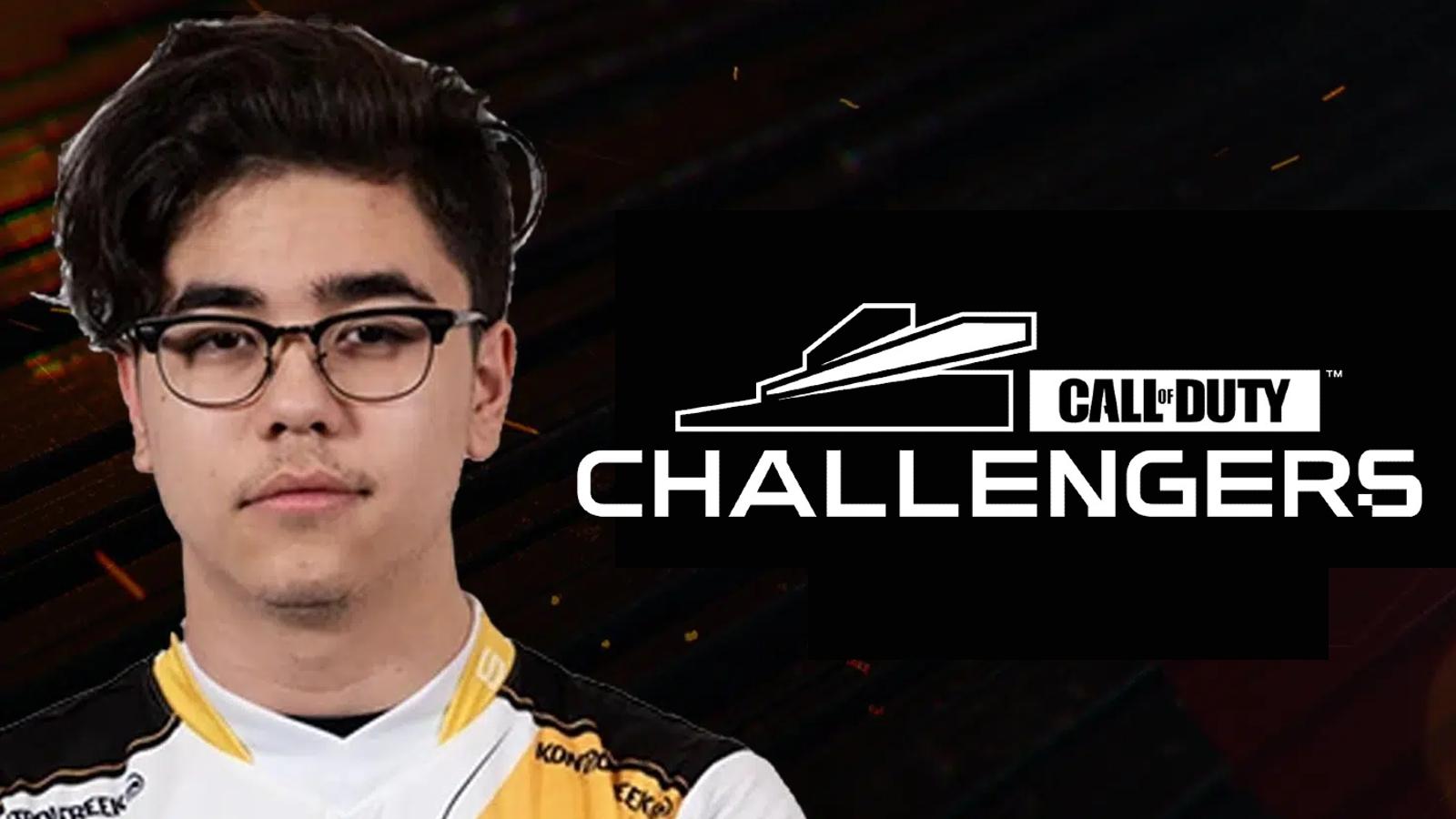The legend of Killa: Call of Duty esport’s forgotten hero
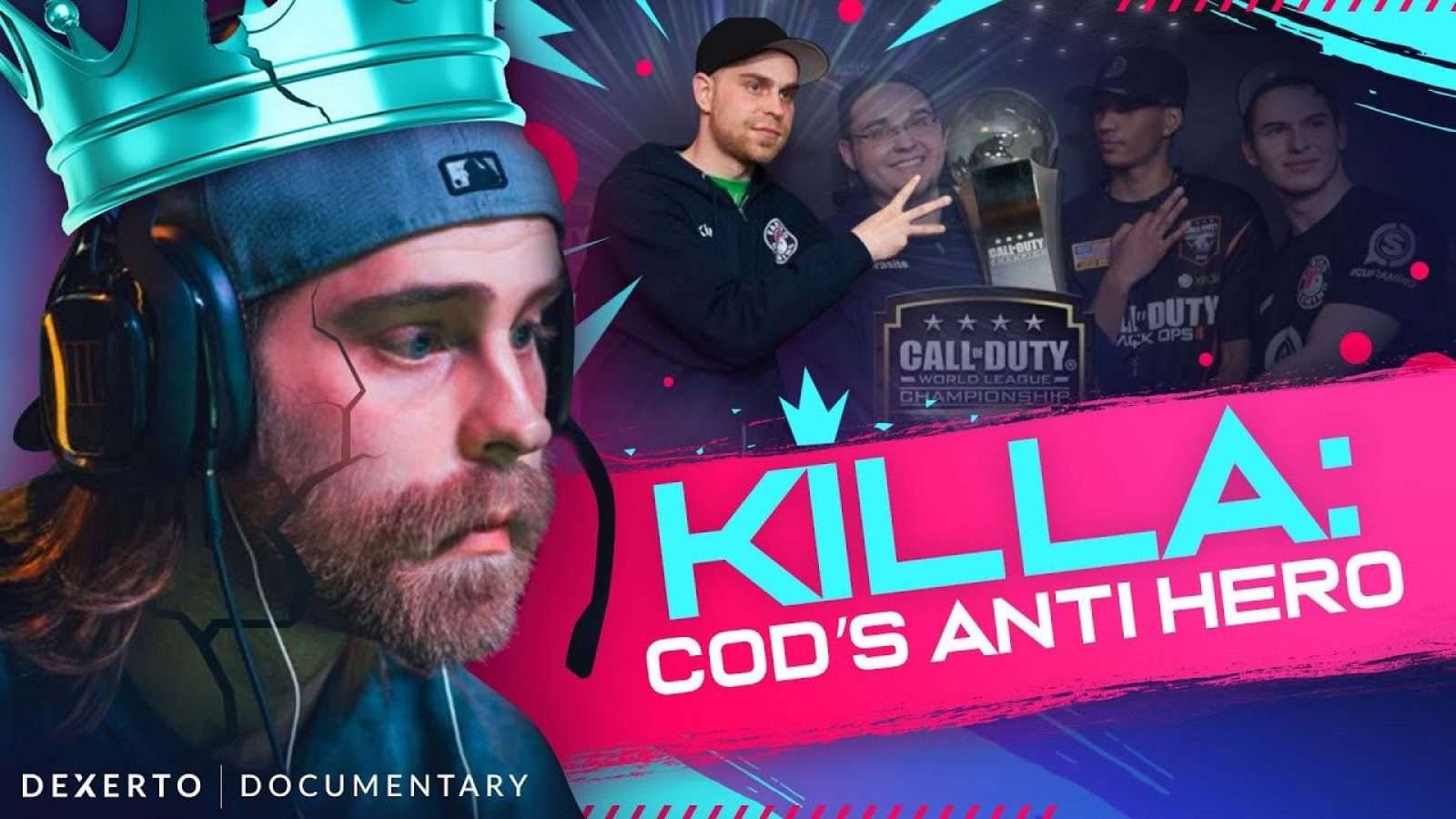
If Call of Duty had a physical hall of fame, somewhere in a dusty forgotten corner would sit a portrait of Adam “Killa” Sloss – a former World Champion who seems to have, at some point, been left behind. Killa’s career is the stuff of legend. To many, he’ll forever be considered one of the most brutal players the scene has ever known, both for his in-game skill and explosive personality.
Born April ‘93 in Philadelphia, Killa was struggling in education long before Call of Duty arrived and distracted him further. Book learning just couldn’t capture his attention, and the most he had going for him at school was an occasional role as the class clown. At home, the relationship with his parents was fractured. Only Modern Warfare 2 could keep his focus, and with that he was obsessed.
[ad name=”article1″]
Killa would stay glued to his sofa from night time till twilight, eyes never straying from the screen. This lack of sleep fed into a vicious cycle: missing school the next day, falling further behind, and relying more and more on a future that in some way involved his favourite FPS game. A brief job as a painter stopped after just two weeks; pursuing COD really was the only thing that could drive him.
Problem was the competitive scene itself wasn’t ready. LANs were rare, and he had no way to attend the events that did crop up. Small online tournaments were his best bet, and gradually, Killa’s dedication helped him make a name for himself.
Around the turn of Black Ops 1, the right person finally noticed.
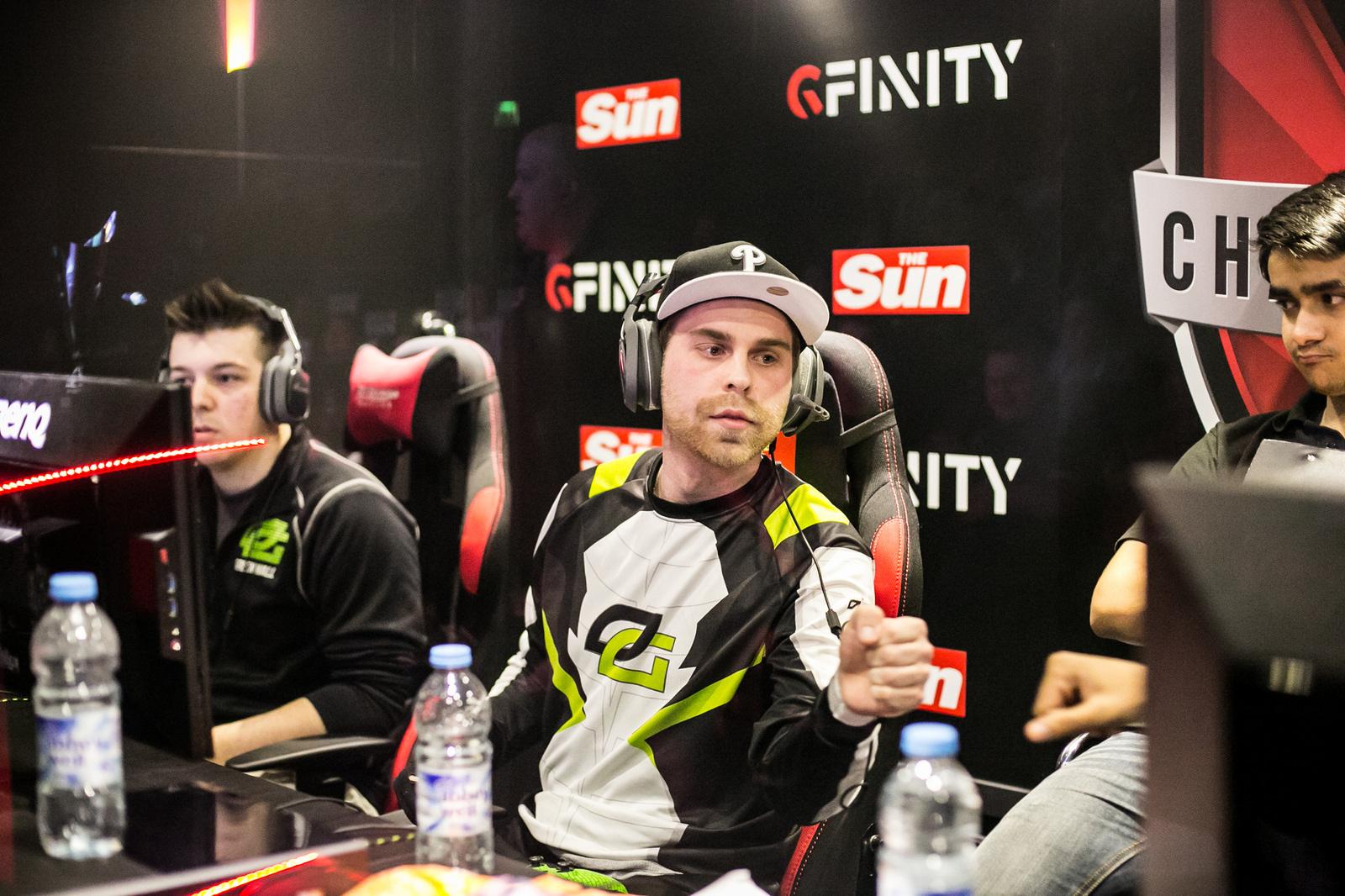 Killa became one of Call of Duty’s most recognizable stars – but it wasn’t an easy road.
Killa became one of Call of Duty’s most recognizable stars – but it wasn’t an easy road.Killa may have never made it without Paul “Ego” Megna. Ego, pretty much unique among the early COD scene as he actually had cash to spare, was a philanthropist that used his money to help talented up-and-comers attend events.
A significant list of players owe Ego for their early success. TuQuick, Nifty; even a certain three-time world champion in Damon “Karma” Barlow.
But in 2011, it was Killa’s turn. Ego invited him to join his Icons team alongside RJ, Terror, and Ego himself. While they found no immediate success, Killa gained a tonne of experience, but more importantly, he found his people. Guys that understood the deep-rooted desire he had to reach for the stars in a game that still had such a low glass ceiling.
[ad name=”article3″]
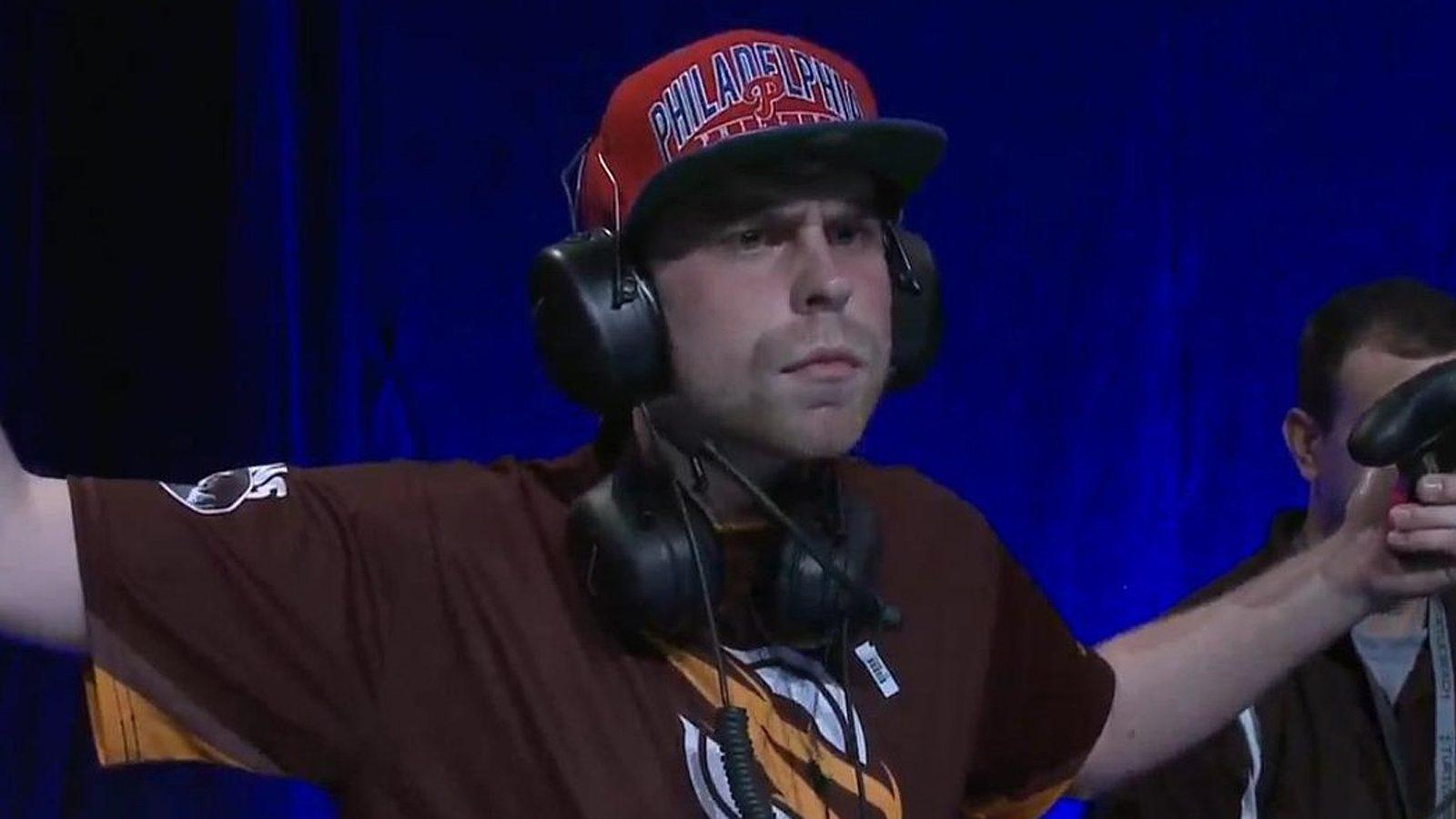 Killa found a home on Fariko Impact during a successful Black Ops 2 season.
Killa found a home on Fariko Impact during a successful Black Ops 2 season.These events paid far more in experience than they ever did in cash. But then, out of nothing, a million-dollar tournament was announced that would end up playing a massive part in so many of these OG COD players’ stories…
Call of Duty XP, announced in June 2011 and held three months later, was essentially a series of show matches. In holding the biggest tournament the franchise had ever seen on the unreleased Modern Warfare 3, Activision placed their own marketing over the hard work of their competitive player base. At this point though, player power wasn’t really a thing, and so one by one the top teams signed up.
Killa will have been quietly confident. One of his key skills had been coming to grips with a new COD faster than anyone else. With everyone brand new, his adaptability would give Icons a huge advantage.
Each player was there for the same thing: the chance to stay on the COD grind for a bit longer before being forced to give up and get a normal day-job. But Icons held firm, fighting their way to a semi-final matchup with Til Infinity.
The chance to claim the 400k top prize had eluded them. But they didn’t have long to lick their wounds. In the third-place playoff against Infused, Icons stepped up, winning it by three games to none.
Killa alone picked up 30 thousand dollars. But this was more than just money; it was vindication for choosing gaming over schoolwork. Proof he had what it took to win on the biggest stages of all. Most importantly, it was more time he could spend on the grind without totally risking his future.
The will to win tournaments only became more desperate.
After all that excitement, half a Black Ops 1 season still remained. Icons would find no further success. Eventually, with the Modern Warfare 3 season starting for real, Killa felt ready for a new challenge. He hopped teams, first to Collapse and then to Team Fear.
Both teams were good, but it didn’t matter. Modern Warfare 3’s competitive scene was completely arid.
Killa entered anything he could, even travelling halfway round the world for small prize pools. In the only two events in NA, his team finished first and second, earning a share of just 3500 bucks in total between all four of them. Sandwiched between were EGL events in England. Each paid less than the flights there.
Through no fault of Killa’s own, the scene was crumbling around him.
In November 2012, ahead of Black Ops 2, Killa signed with Fariko Impact. He was finally on a roster that shared his relentless thirst for success, spearheaded by a wrecking ball of a teammate that would go on to be known as the greatest of all time.
The fans had no idea what was coming.
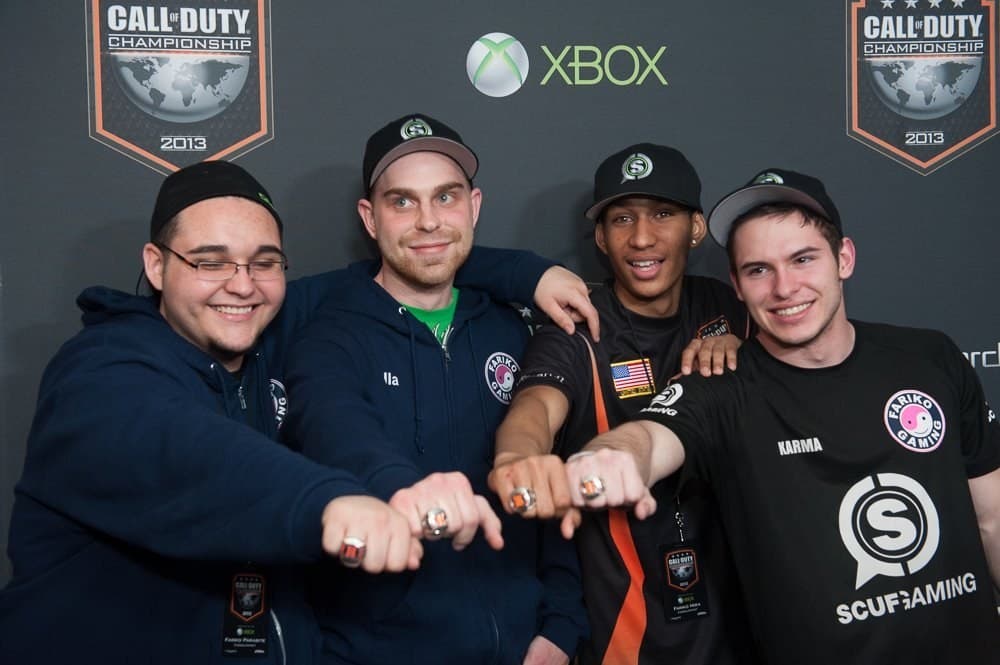 Killa and Fariko Impact reached the pinnacle of Call of Duty at the Black Ops 2 World Championships.
Killa and Fariko Impact reached the pinnacle of Call of Duty at the Black Ops 2 World Championships.Opposition plays seemed telegraphed into Karma’s head like he was plugged into the game’s matrix. It was incredible to watch, and it would have felt even better to play alongside, if it wasn’t for Karma’s one big problem: Karma. The man was an easily-tilted emotional thunderstorm; one that nobody else would justify teaming with.
The only one that was arrogant enough not to be afraid? Killa. He figured if anyone could tame the beast, it would surely be him. Besides, now was the perfect time to take the risk. The Black Ops 2 season was set to be huge. Serious money was there to be made.
Things started fairly well. Fariko finished third in Machinima’s Frag Cup IV, then matched that at UMG Chicago 2012. But Killa and Karma were ruthlessly ambitious. Bronze medals weren’t enough. TuQuick and John were soon kicked, replaced by Parasite and MirX.
Next up was the MLG Winter Championship, three months later in March 2013. By now, information had landed about the first million-dollar World Championships, ratcheting up the pressure ever further.
Fariko grinded harder than ever, developing a level of tactical sophistication that had never before been seen. Among it all, Killa convinced MirX to leave his job and spend more time training. So when the Winter Championship finally arrived, they weren’t just there for a pay check – they wanted to make themselves feared.
With that elimination from Killa, they’d done what they’d come here to do.
The biggest tournament of all time was now just two weeks away, and any other team would’ve taken a breather. Instead, Fariko travelled to a UMG event in Blackpool, England – the only top tier team to do so. To no one’s surprise, they won that too.
Fariko headed to the World Champs on a two-tournament win streak. But it wasn’t that simple behind the scenes. Karma being Karma made things difficult enough, and the rest of them were constantly involved in their own little bitter disagreements. In truth, the team had only one thing in common: a will to win unlike anything that Call of Duty had ever seen.
So up they stepped, knowing they were clear favourites in a tournament they couldn’t screw up. Otherwise the endless arguments, and the hours spent training, would all go to waste. Killa’s ego had been growing exponentially with each event win. Lose here, it might’ve been damaged beyond repair.
But bringing this legendary team down would take more than a bit of pressure. Despite being sent to the losers’ bracket by EnVy, they eased past OpTic to set up a best of 11 Grand Finals EnVy rematch. One of the most thrilling series of all time would follow.
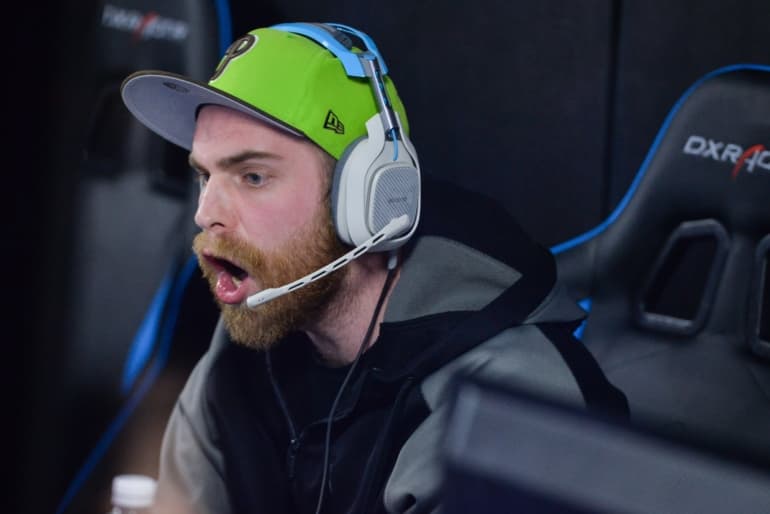 KiLLa has been known for bringing a special level of hype to his matches.
KiLLa has been known for bringing a special level of hype to his matches.Killa could achieve anything. That’s what he thought now. Any remaining humility had disappeared as soon as the confetti started falling. Nobody was as good as him. No one. He had the crown now, and it would never be taken away.
It’s a thought that many throughout history have had. So far, Killa included, they’ve all been wrong.
The inevitable slide didn’t start right away. Two weeks later they went to UMG St. Louis and won that too, no other team coming close. But success began to change them, Killa in particular. Not in a materialistic way – he was always much more comfortable in those same old cheap clothes – but in the sense that it wore away at the only thing he had over the dozens of competitors with more natural talent: his unrelenting drive.
A love of LANs morphed gradually into all-night partying on the eve of events. At the start, the team were good enough for it not to make a difference. Killa and the gang would fall asleep two hours before start time, wake up hungover and drunk, and still steal a place in the top three.
For Killa, Mirx and Parasite these were the glory days. For Karma, frustrated at his teammates’ changes in attitude, that was far from the case. Karma now admits he was just as bad as the rest of them, but at the time, that’s far from how he felt.
Three months after World Champs, at Gfinity London 2013, Fariko finished fourth. Whether it was team politics, arrogance, or the FAL being banned by Activision forcing them to change their playstyle, Call of Duty’s first dynasty was imploding. Maybe things could’ve worked out if they’d sat down and talked their issues through. But the players’ egos were now so fragile that basic communication was no longer an option.
Karma had finally had enough. He jumped ship, moving to EnVy and taking his insane game knowledge with him. Killa now accepts that Karma did the right thing, but at the time, all he felt was betrayal. These dysfunctional best friends had built each other up from nothing. Suddenly, their most powerful weapon had gone.
Killa wasn’t worried though. That’s what he told himself. He didn’t need Karma anyway. All he needed was his drive, and now it was back; revenge against his former teammate the new Holy Grail he’d chase to the ends of the Earth. Fariko promoted from within, bringing substitute John into the main team. But if the confidence in this new roster really was there, it wouldn’t last long. A piece of the puzzle was now missing.
The team bounced between orgs, eventually signing with Epsilon ahead of UMG Atlanta 2013, finishing a respectable third, and then immediately being dropped. Why? Because when Killa came up against Karma’s EnVy and won, he didn’t do it peacefully.
Quotes from this tirade still get shared in the community. It should be said though, Killa did apologise. In his opinion at the time, it soon became water under the bridge.
Whether Karma actually cared how Killa behaved is another question entirely. As Karma moved to compLexity and ushered in the game’s second great dynasty, Killa became a journeyman, scrapping away in the early rounds of tournaments in search of the occasional top 10 finish.
Through 2014, a Ghosts season that began as ordinary at best included his greatest failure yet: missing out on World Champ qualification. As Karma won the second of his three rings, Killa watched on from the sidelines, never even getting to defend his title. A spell with OpTic’s B team, OpTic Nation, saw him through to the end of Ghosts.
Many encouraged Killa to make the most of his new org’s dedication to their content creators. But to their frustration he rarely streamed, and his YouTube presence was non-existent. Killa, still as stubborn as ever, only had eyes for potential prize money.
In fairness, the second half of the season was better. In Killa’s first OpTic Nation event he finished 4th, outranking OpTic’s A team. But as with most of his career highlights, this shred of success came with a swift kick in the teeth: it was Karma’s compLexity who put them out.
The season faded without fanfare. Killa was still a decent player, and his Ghosts results were actually okay, but missing out on World Champs was all people could remember.
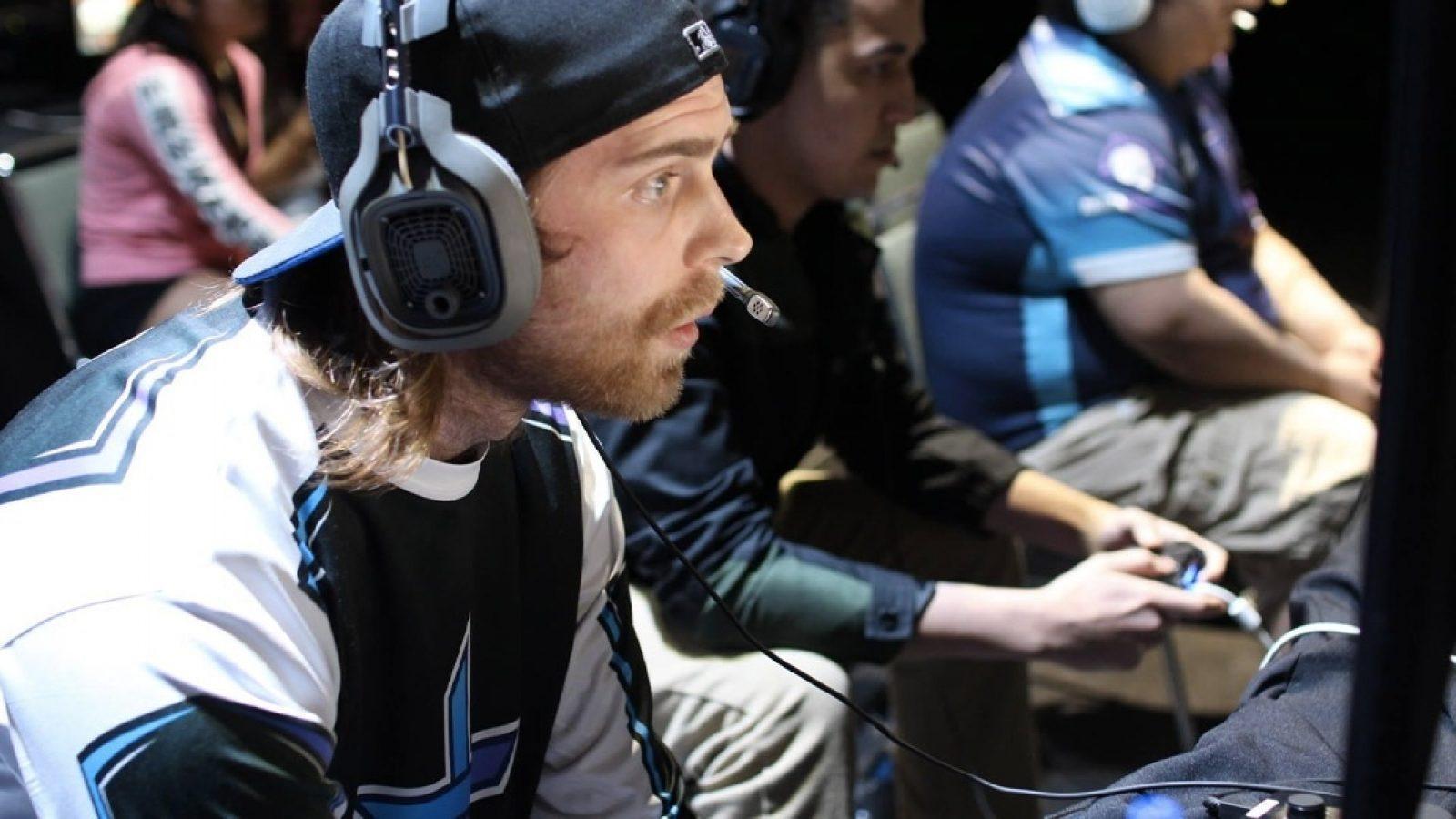 Killa was banned from competing after breaking rules during the World War 2 season.
Killa was banned from competing after breaking rules during the World War 2 season.Advanced Warfare, released November 2014, is where he really fell behind. Fate intervened to try and help, as Karma – remember him? – was drafted into OpTic from compLexity and dropped into the reserves alongside Killa for reasons you can probably guess.
But however hard Killa tried, they couldn’t rekindle the old magic.
For Karma, Optic Nation was a stepping stone, and he was quickly transitioned into the main roster. For Killa, this was as good as it got. Org after org picked him up; org after org then dropped him straight away. Skill-wise he was no longer anything special, politically he was a nightmare, and the list of players that refused to team with him grew longer by the day.
By November 2015 and Black Ops 3, his reputation had hit rock bottom. Without an organization, he spent the first few months of the season cleaning up his image. The self-improvement paid off with an opportunity that raised more than a few eyebrows in the scene.
He signed for Cloud 9. .
The only way a player like Killa survives in an org like this is by winning everything and doing it quickly. Their first event would be the UMG South Carolina 2016 open bracket, where the team simply had to perform. Top 32 though, was all they managed.
The Killa experiment ended straight after that tournament. He took to Twitter, swearing that he never saw it coming.
Still, Killa seemed to have turned over a new leaf – perhaps because he’d recently discovered he’d be having a child with his long-term girlfriend. He quickly accepted a role on the OpTic subs bench, and soon had an opportunity in Week 6 of the 2016 CWL Pro League. This time, he shone.
A starting role with an org called Dream Team was his reward. The good news continued, as they surprised the world by reaching Stage 2 of the CWL playoffs, where they’d go on to finish an impressive second. The prize was 40 thousand dollars – the most Killa had won since 2013 – as well as qualification for the 2016 World Championships.
Killa was praised for bringing experience and organisation to a squad that was lacking both. The team were on the up, and Renegades, an established org that were new to the COD scene, took a chance on them ahead of the World Champs.
For any other player, this may have been the start of a redemption arc. Sadly, Adam Killa Sloss is no regular player, and any redemption arc would have to wait. Instead he went nuclear. And it happened on the biggest stage of all.
By the time of the World Champs, Killa’s Twitter habits were more volatile than ever, filled with rage and conspiracy theories about how tournaments were rigged against him. Perhaps this was why his team lost their first two group stage matches and were immediately eliminated.
But they still had one series left, against a Pulse team who were also already out. Killa, in all his wisdom, refused to play. Renegades were forced to forfeit. He’d always been a loose cannon – it’s why so many loved him – but nobody supported this.
Renegades released Killa straight after.
The Infinite Warfare season was about to start. But before then, a tragedy occurred that struck the entire COD community – and Killa in particular – incredibly hard.
Phillip “Phizzurp” Klemenov, a friend of Killa’s since they’d teamed together in 2012, and who streamed with Killa as often as they possibly could, unexpectedly lost his life on October 2nd, 2016.
Understandably, Killa was deeply affected by the loss, and his mental state deteriorated. Just two months later he entered CWL Vegas – Infinite Warfare’s first event. The team placed outside the money, and the conspiracy theories that followed showed how fragile this former World Champion had now become.
For the rest of that season, results didn’t matter. Killa was learning to raise his child, still deep in mourning, and needed to focus on himself instead of his career. Gradually his true personality returned, but he was hit with one more controversy a year later, during the World War 2 season. While teaming with lower level friends in an online tournament, he broke the rules by using someone else’s account. This time, he’d be banned, for the rest of the season.
It’s taken six long years, but Killa’s finally come to terms with the fact that he’s no longer seen as the World Champion with the incredible work ethic. Instead, he’s become a competitive spectre; still revered, just not as a player; someone the old guard can reference whenever they’re in need of an easy joke.
The ban ended with Black Ops 4. On two occasions since then, he’s grinded with up-and-comers, played his way into form, then found himself stood up at the event they were training for – once because a teammate slept in, another for reasons unknown. Now a father of two, there’s no further pressure on Killa to compete, and those extra hours can be used to hone his skills as a dad.
Killa now speaks freely about the good old days, sometimes even with a hint of a smile on his face. During his ban he even upgraded his stream. Now he’s regularly going live, for hundreds of viewers at a time, playing whatever he wants while sharing his opinions about a COD scene he still cares about deeply.
It may well be that Killa will never challenge the top of the Twitch charts, but he seems to have achieved something better: for now, at least, he’s found inner peace. Maybe, just maybe, this story does have a redemption arc after all.
